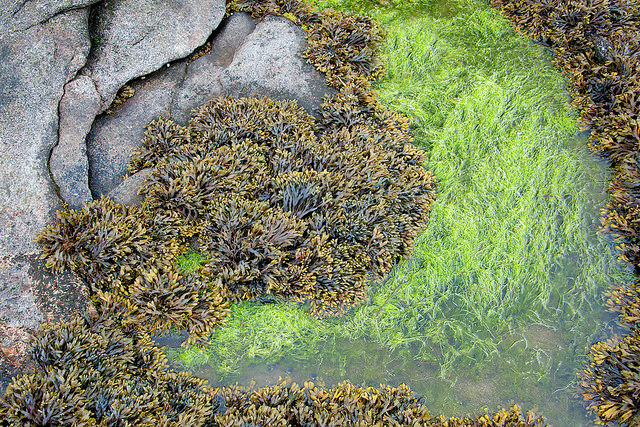If you’re unfamiliar with free-market environmentalism, you might not realize the importance of clearly defined and secure property rights to conservation. In Maine, a legal dispute over rights to harvest rockweed growing along the shoreline is highlighting that significance for all to see.
PERC adjunct fellow and Pacific Legal Foundation staff attorney Jonathan Wood recently described the situation:
In Maine, no one is quite sure who owns the rockweed (the local seaweed) growing in the area between high tide and low tide. The land is private property owned by whoever owns the abutting beach. But there are many other resources (fish, crabs, etc.) that are public resources, free for anyone to fish under the public trust.
This legal uncertainty poses an environmental problem. More people and companies are trying to harvest the sea weed for fertilizer—sometimes over the objection of the landowner—risking a tragedy of the commons where harvest is unsustainable and the loss of rockweed reduces habitat for fish and other species. The Maine Supreme Court is currently considering the question in a case pitting property owners against harvesters. Arcane legal questions about the ancient public trust doctrine aside, the court’s decision—whether it favors property rights or open access—could have significant environmental impacts.
In Ross v. Acadian Seaplants Ltd., a company is trying to expand Maine’s public trust doctrine to allow it to harvest rockweed (a species of seaweed) from private property without the owners’ permission—and over their explicit objections. In Maine, coastal property owners own the land between high and low tide, an area where valuable rockweed grows. Many property owners, concerned that current harvesting is unsustainable and harmful to the local ecosystem, forbid harvesting on their land. Although this land is subject to public trust rights, those have been limited to “fishing,” “fowling,” and “navigation” for almost 400 years. Expanding public trust rights beyond those limits to include rockweed harvesting would destabilize property rights, increase conflict, and undermine environmental protection.




